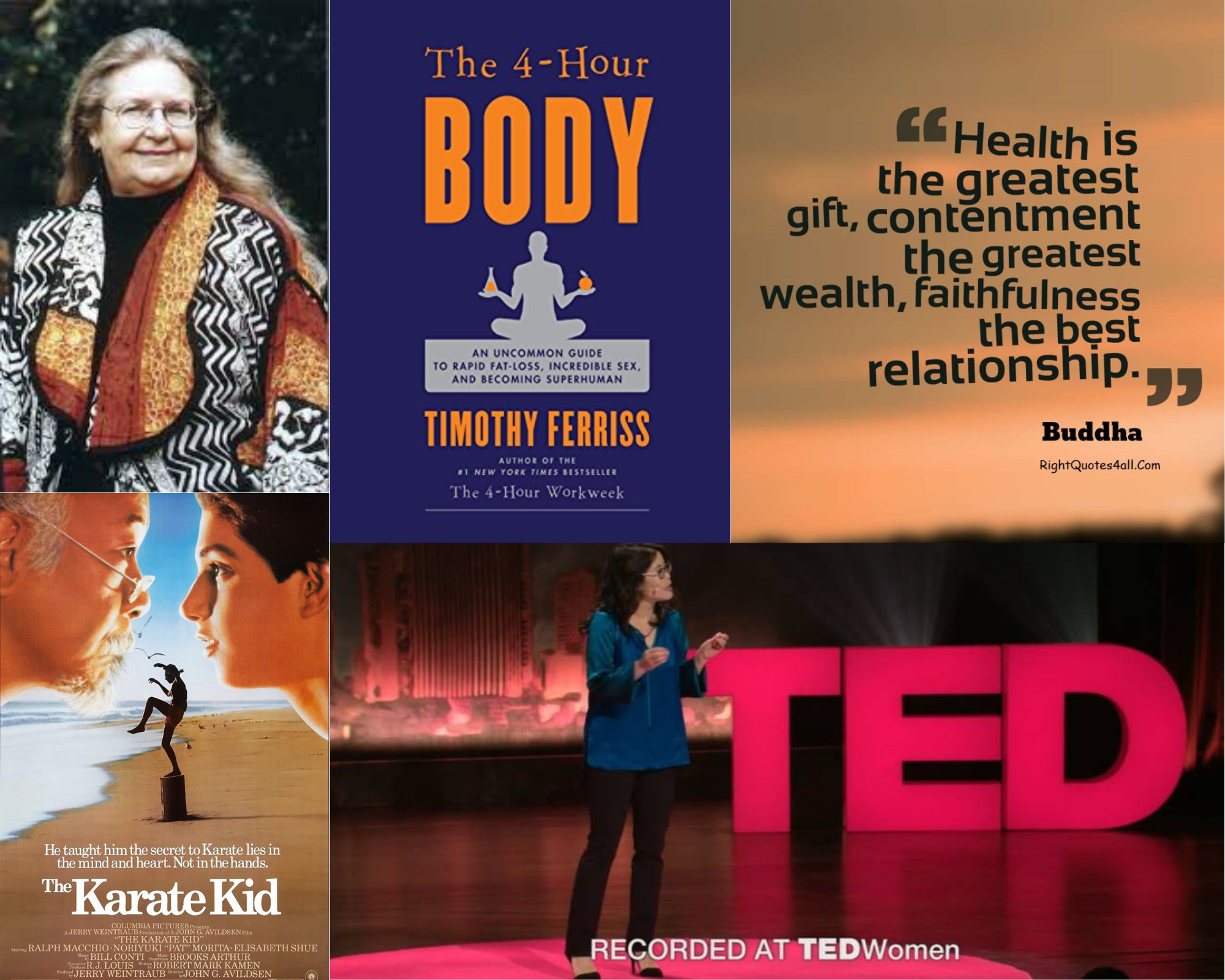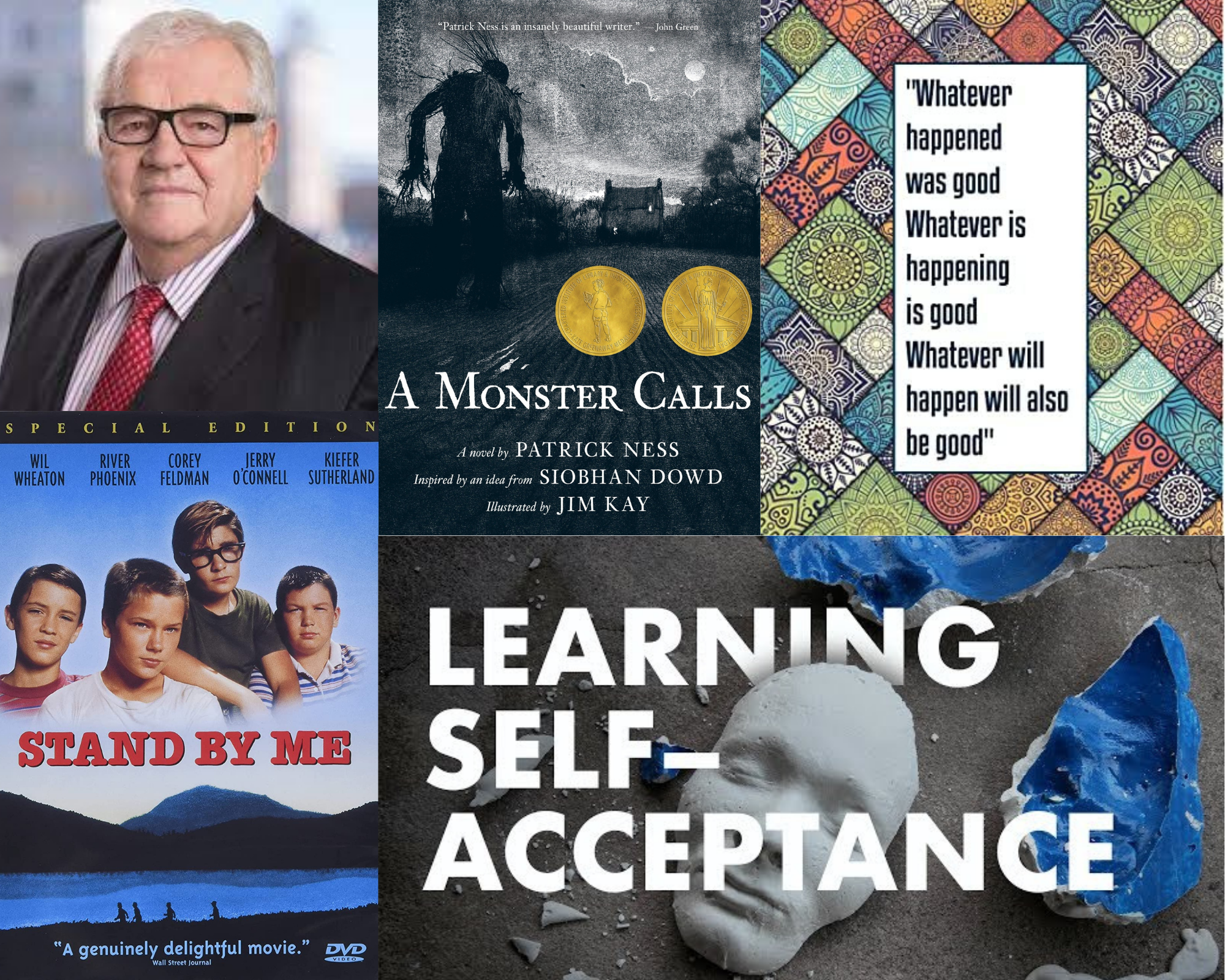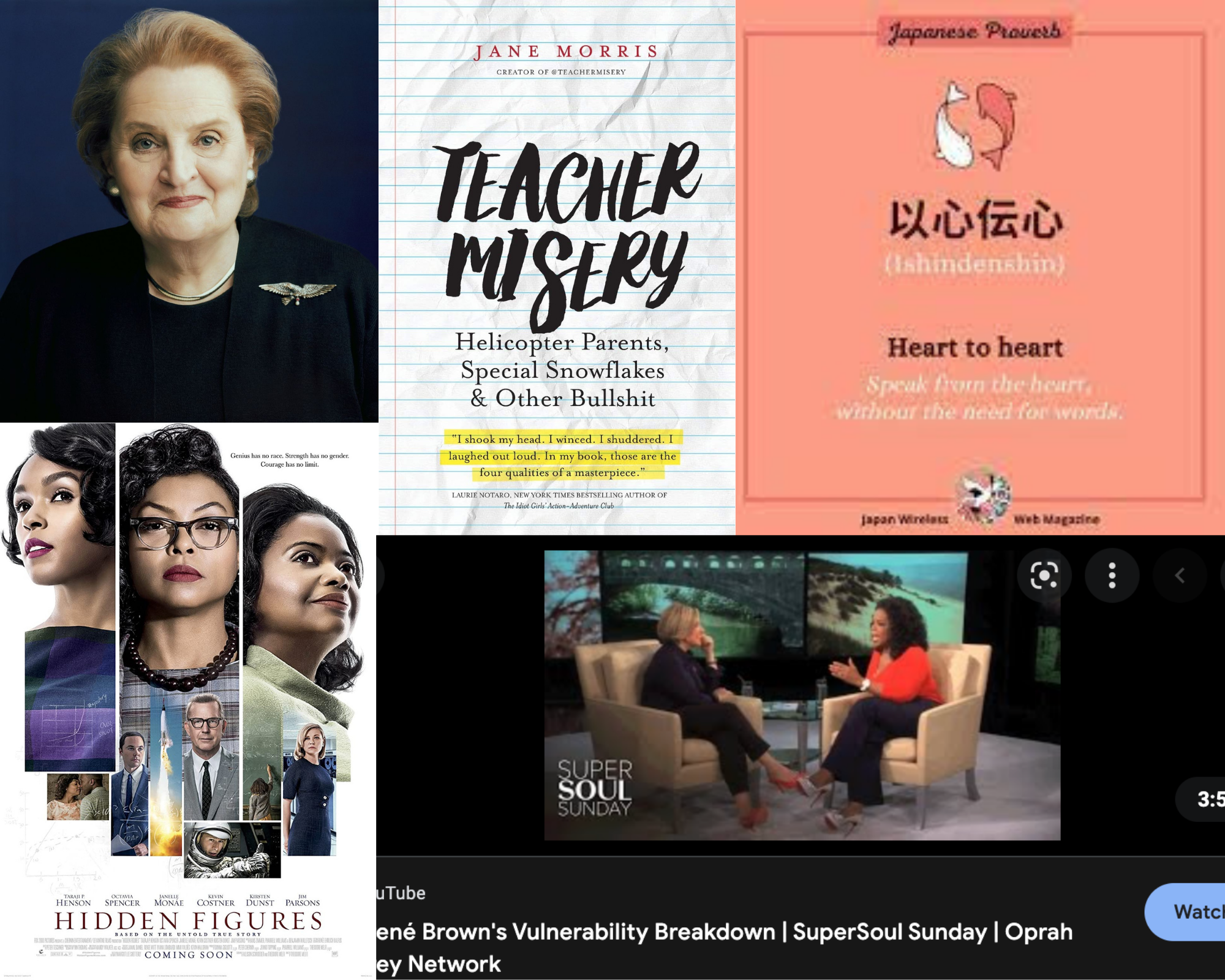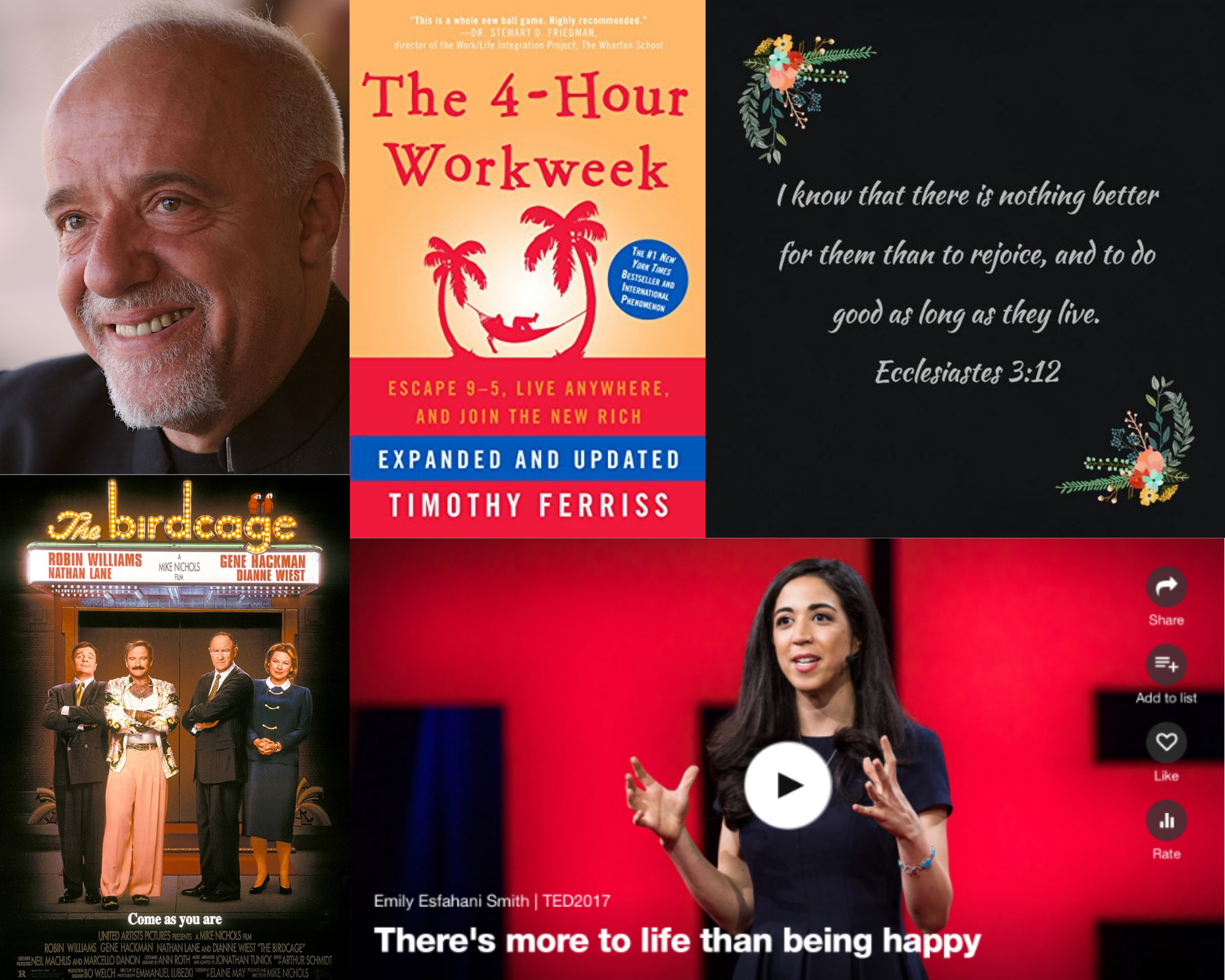Sunday Supplement #64 (July 31st, 2022)
Below is another Sunday Supplement with a quote worth sharing, a book worth reading, a movie worth watching, brainfood worth consuming, and a spiritual passage worth pondering.
I hope you take something away from these recommendations that enriches your week ahead!
Quote of the Week:
“Good health is not something we can buy. However, it can be an extremely valuable savings account.”
– Anne Wilson Schaef
Book of the Week:
The 4-Hour Body – Timothy Ferriss
*I recommend this book with a grain of salt. I do not believe everything in The 4-Hour Body should be followed. Ferriss isn’t a dietician or doctor. He states as much in a disclaimer.
That being said, I picked up many useful tidbits from the book.
Ferriss’ The 4-Hour Body was his followup to his New York Times bestseller, The 4-Hour Workweek (which I covered in Sunday Supplement #57).
In addition to his award-winning podcast, bestselling books, and successes as an entrepreneur, Ferriss is a tango world record holder and former national kickboxing champion.
The 4-Hour Body is the culmination of Ferriss’ quest to find the best and tiniest changes for all things physical that produce the biggest results.
There is an excellent introduction to the book that helps readers decide which sections are best for them. It covers everything from dieting and weight loss to sex and sleep.
While I gave the asterisks at the beginning of the recommendation, there is testing behind his research, and athlete and MD referrals.
For me, this was a great book to learn about the science behind health and exercise. I view it as a good introductory book that is an easy and fun read.
Movie of the Week:
John G. Avildsen’s The Karate Kid is an 80s film about a teenager, Daniel, who gets bullied after his move to California and his journey under the tutelage of a martial arts master.
The movie is a relatively simple story, along the lines of one of Avildsen’s previous films (Rocky), and it was able to capture something special like Rocky.
Daniel’s journey in the story is an interesting mix of standing up for himself physically and learning maturity and balance in all aspects of his life.
While Ralph Macchio did a brilliant job as Daniel, the star of the movie is Pat Morita as Daniel’s tutor Mr. Miyagi.
Morita was nowhere near the radar of the higher-ups for the role, but Avildsen advocated for Morita as Mr. Miyagi. Ultimately, Morita received an Academy Award nomination for his performance.
The Karate Kid went on to have three sequels and a currently running Emmy-nominated series after its massive success at the box office.
The movie is a fun summer popcorn flick that packs some substance along with its punches.
Brainfood of the Week:
The Brain-Changing Benefits of Exercise | Wendy Suzuki
“What if I told you there was something you can do right now that would have an immediate, positive benefit for your brain, including your mood and your focus?”
“And what if I told you that same thing could actually last a long time and protect your brain from different conditions like depression, Alzheimer’s disease, or dementia? Would you do it?”
Neuroscientist Wendy Suzuki opens her TED Talks with these questions. She states that the way to achieve these powerful effects is through physical activity.
Suzuki tells a personal story that exemplifies why exercise is the most transformative thing you can do for your brain today.
Her findings through her own experience led her to change her research focus.
After years of analysis, Suzuki found exercise has immediate effects on your brain, long-term attention function, as well as long-term improvement of good mood neurotransmitters and protective effects on your brain.
Suzuki wraps up her TED Talks by answering how long you have to exercise to trigger these positive outcomes. Exercising three to four times a week for thirty minutes is the answer.
This TED Talk has many more valuable benefits and is worth taking 13 minutes of your day.
Closing Spiritual Passage:
“Health is the greatest gift.”
– Dhammapada 204
Health can be taken for granted until confronted with illness in oneself or a close friend or relative.
This Dhammapada quote reminds me to cherish my health and the health of my loved ones.
I think our physical well-being is as vital as our mental well-being. They are linked, and each can be used as a kickstart for the other.
There is a lot of toxicity around the vanity of health. I don’t think healthy living means a photoshopped magazine image. It means treating your body with kindness.
Kindness doesn’t mean saying nice things and spoiling oneself or others, though. It means being honest with oneself and others without being mean.
The Dhammapada and many other spiritual practices preach the benefits of treating one’s body as a gift.
There are many benefits to making your physical health a priority. This quote was a timely reminder for me to be more conscious of how I’m treating my body.
Treat your physical health with kindness, and have a blessed week ahead!
Comments closed



